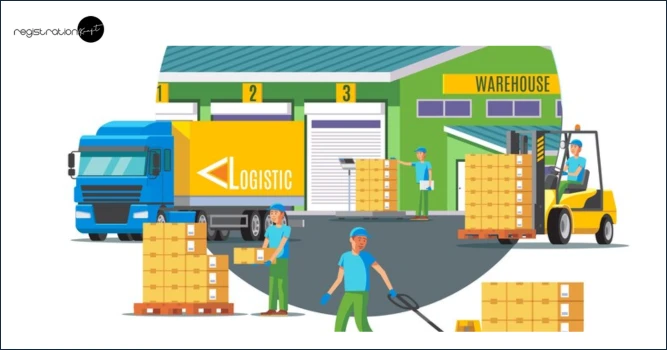What is Certificate of Origin in India

A Certificate of Origin (COO) is an essential document in the world of international trade. It officially certifies the country where a product was manufactured, helping customs authorities and businesses verify the origin of goods. Beyond just stating the manufacturing country, this certificate also provides important details such as the description of the product, its final destination, and the countries involved in the export process.
Benefits of Certificate of Origin
For anyone involved in exporting or cross-border trade, the Certificate of Origin is a necessary requirement under many trade agreements and international treaties. Below are the main benefits of Certificate of Origin.
- A Certificate of Origin is essential for moving goods across international borders.
- It acts like a passport for your products — without it, Customs will not allow your goods to leave the warehouse.
- This document tells Customs officers where the goods are coming from.
- It helps Customs determine the correct duties or taxes that need to be paid.
- It also ensures that the goods being imported or exported are legal.
- Without a Certificate of Origin, your shipment could face delays and complications.
- Having a complete and accurate Certificate of Origin ensures smooth and hassle-free trade.
Difference Between Non- Preferential and Preferential Certificate of Origin
| Basis of Difference | Non-Preferential Certificate of Origin | Preferential Certificate of Origin |
| Purpose | Certifies that goods do not qualify for any tariff benefits. | Certifies that goods qualify for reduced tariffs or duty-free access under trade agreements. |
| Use | General trade between countries with no special agreements. | Trade between countries that have special trade agreements (like Free Trade Agreements, FTAs). |
| Tariff Benefits | No tariff concessions. | Tariff concessions or exemptions are provided. |
| Example | Exporting goods to a country without a trade deal. | Exporting goods under SAFTA, ASEAN-FTA, etc. |
| Issuing Authority | Approved organizations or government bodies. | Authorized bodies specified under trade agreements. |
| Customs Processing | Regular customs duty applies. | Reduced or zero customs duty applies based on the agreement. |
Who Can Apply for a Certificate of Origin?
Exporters:
The most common applicants are exporters — individuals or businesses sending goods to another country. As an exporter, you’ll need to provide key details about the goods, where they come from, and where they’re headed.
Manufacturers:
If you’re a manufacturer shipping products directly overseas, you can apply for the CoO too. This usually happens when the manufacturer is also listed as the exporter on the shipping documents.
Authorized Representatives:
Sometimes, exporters prefer to have someone else handle the paperwork. In that case, authorized representatives like freight forwarders, logistics providers, or customs brokers can apply on the exporter’s behalf. All it takes is a simple authorization letter allowing them to act as your agent during the application process.
FAQs
Who issues the Certificate of Origin
In India, Certificates of Origin (COOs) are typically issued by authorized bodies like Chambers of Commerce, Export Promotion Councils, and various Trade Associations/Councils.
Where to apply for a Certificate of Origin?
In India, you can apply for a Certificate of Origin (CoO) through the Trade Connect Portal
Must Read: Certificate of Commencement of Business
Categories: Business
Tags:





